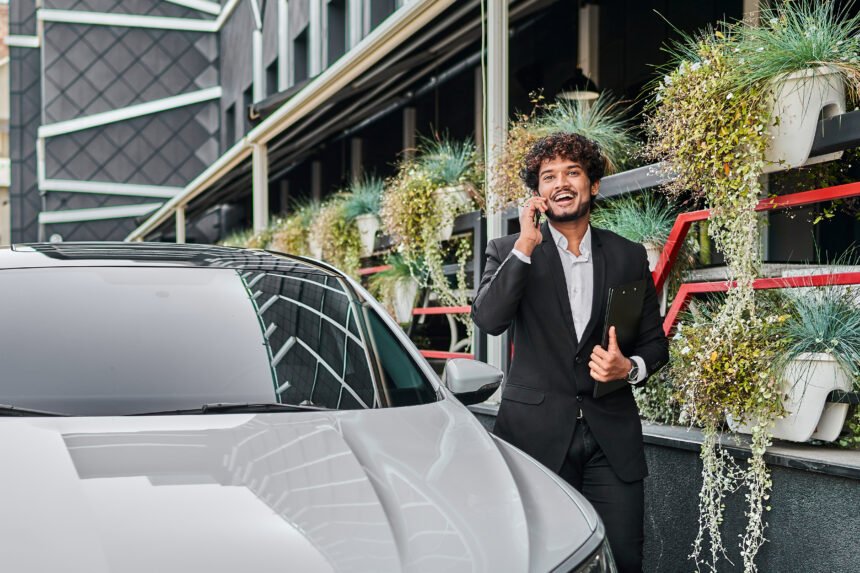People today expect more than just products—they crave meaningful experiences. This shift has led to a significant increase in luxury spending. Yet, luxury today is not just about owning expensive things. It’s about feeling special, living well, and making sustainable choices that reflect personal values. Let’s explore why luxury is thriving in an experience-driven economy and how businesses are combining luxury with sustainability.
Luxury & the Experience Economy
The experience economy is all about investing in memories, not just material possessions. Consumers now prefer luxury experiences, such as private travel, wellness retreats, and personalized services, over traditional luxury goods. These experiences offer emotional value, exclusivity, and a sense of identity.
Therefore, luxury brands are adapting by offering immersive experiences—such as VIP fashion shows, personalized shopping appointments, and curated travel packages. These moments create memorable impressions and foster deeper customer loyalty.
What Is Sustainable Luxury?
Sustainable luxury is a growing trend in every industry now. Speaking of the concept, sustainable luxury means combining high-end quality with ethical and eco-friendly practices. It’s about luxury that respects people and the planet. This includes using recycled materials, minimizing the carbon footprint, and promoting fair labor practices.
This has influenced consumers’ purchasing preferences. They prefer to purchase from luxury brands that continue to prioritize environmental care and social responsibility.
Which Luxury Brand Is the Most Sustainable?
There’s no exact explanation of which luxury brand can be considered the most sustainable.
However, primarily, a sustainable luxury brand aims for a cruelty-free and eco-conscious approach, using vegan materials. This also means that the brand is a pioneer in combining style with sustainability, continuing to lead the way in ethical luxury.
Let’s check out some examples from renowned luxury brands worldwide.
- Is Dior Actually Sustainable?
Who doesn’t love to purchase a luxurious perfume from Dior?
Dior has enhanced its product lifecycles through initiatives such as creating refillable perfume and makeup bottles, as well as exploring circular economy models for waste management.
Another notable feature is that its perfume boxes are designed with eco-friendly principles, using 100% recycled and recyclable materials while maintaining a luxurious appearance.
- Is Louis Vuitton a Sustainable Brand?
Yes, it is. Louis Vuitton creates high-quality products designed to last, offering repair services to encourage reuse and extend the life of items. The brand has been known to burn unsold stock, a practice that contradicts sustainability goals and contributes to waste.
Other luxury brands that also promote sustainability include:
- Stella McCartney: A popular brand that supports sustainable luxury. The brand avoids fur, leather, and harmful chemicals, and uses only innovative materials, including vegan leather and recycled fabrics.
- Gucci: The brand has shifted its focus towards more ethical practices, prioritizing the reduction of its carbon footprint and enhancing supply chain transparency.
- Patagonia: Known for its environmental activism, this outdoor brand incorporates sustainable practices, including slow fashion, which uses organic and recycled materials. Plus, it also donates some profits to environmental causes
How Do Businesses Combine Luxury with Sustainability?
To follow this ongoing trend, luxury brands are blending sustainability into their core strategies. Here’s how:
- Using Eco-Friendly Materials: Using organic cotton, recycled leather, and biodegradable packaging.
- Circular Fashion: Offering repair services, resale platforms, and rental options.
- Transparent Sourcing: Sharing the details of where and how products are made.
- Innovation: Investing in green technologies and sustainable design.
The best part? Many brands have made big efforts to engage their consumers in their own ways, such as:
- Compelling Storytelling: Brands tell meaningful stories about their sustainable efforts, fostering loyalty and connecting with consumers’ values beyond the product itself.
- Experiential Sustainability: Creating immersive, eco-friendly events and interactive programs, such as recycling initiatives, allows consumers to participate in the brand’s sustainable mission actively
The Future of Sustainable Luxury
Speaking of the future of sustainable luxury, we can confidently say that green, ethical, and experience-driven values characterize it. As younger generations (Gen Z) demand more accountability, of course, more luxury brands must evolve.
In the upcoming years, we can expect to see:
- More personalized, sustainable experiences made by luxury brands
- Greater use of recycled and innovative materials in their products
- Digital transparency through blockchain and AI (Artificial Intelligence)
- Stronger partnerships with ethical and local suppliers
In simple words, sustainable luxury will continue to thrive. On the other hand, luxury brands will achieve this only if they align with their values and purpose.
Wrapping Up
Undoubtedly, luxury is booming because people want more than products—they want meaning. In an experience-driven economy, sustainable luxury offers the perfect blend of style, ethics, and emotion. Brands that embrace this shift will not only grow—they will surely lead the future. To achieve this, they can utilize eco-friendly materials, adopt circular fashion practices, employ transparent sourcing, foster innovation, craft compelling storytelling, and implement experiential sustainability.
Speaking of the future of sustainable luxury, we can confidently say that green, ethical, and experience-driven values characterize it. As younger generations (Gen Z) demand more accountability, of course, more luxury brands must evolve.


